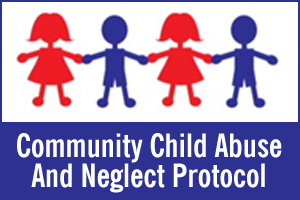The Forsyth County Dept. of Social Services provides Guardianship services for adults who have been declared mentally incompetent by the court and who have no one else to serve as guardian.
Legal Base
"The director and assistant directors of social services of each county may serve as guardians for adults adjudicated incompetent under the provisions of Chapter 35A, and they shall do so if ordered to serve in that capacity by the clerk of the superior court having jurisdiction of a guardianship proceeding brought under that Article". [G.S. 108A-15]
Responsibility of Guardian of the Person
Unless specific limits are set by the court, the Guardian of the Person is responsible for all aspects of a ward's personal welfare including where the ward will live and consents for medical treatment. Decisions regarding the appropriate course of action are made with consultation from experts (physicians, psychologists, attorneys, et al.). The Department of Social Services does not manage the property, estate, and business affairs of wards as the court appoints a Guardian of the Estate to fulfill these duties.
Types of Guardianship
- General Guardian: Guardian of both the estate and the person.
- Guardian of the Estate: Guardian appointed solely for the purpose of managing the property, estate, and business affairs of a ward.
- Guardian of the Person: Guardian appointed solely for the purpose of performing duties relating to the care, custody, and control of a ward.
- Interim Guardian: Temporary guardian appointed prior to adjudication of incompetence when the situation requires immediate intervention to address conditions of imminent risk of harm to the person's physical well-being or to the person's estate.
Frequently Asked Questions
Who is an Incompetent Adult?
"The term `incompetent adult' means an adult or emancipated minor who lacks sufficient
capacity to manage the adult's own affairs or to make or communicate important decisions
concerning the adult's person, family, or property whether the lack of capacity
is due to mental illness, mental retardation, epilepsy, cerebral palsy, autism,
inebriety, senility, disease, injury, or similar cause or condition.” [G. S. 35A-1101(7)]
Who can petition the court for a Guardianship hearing?
Anyone (individual, agency, residential or medical facility, et al.) may file a
guardianship petition with the clerk of superior court.
What are alternatives to Guardianship?
Less restrictive means to protect the disabled adult should be considered before
a guardianship petition is filed. Needs may be met by a representative payee, an
attorney-in-fact, a health care agent acting under a durable power of attorney or
family and friends.
How does the court decide who to appoint as Guardian?
The preferred priority for guardian is:
- An individual (family member, friend or other person);
- A corporation or organization whose charter permits appointment of guardian of the person;
- A disinterested public agent (e.g. Depts. of Social Services).
Is the Guardian financially responsible for the ward?
A guardian is not required to contribute financially toward the support of the ward
and is not liable for the ward's debts. However, the ward’s own resources should
be used wisely for the needs of the ward.
Emergency Rental
Assistance Information
Final ERAP Application Deadline is June 15, 2022











